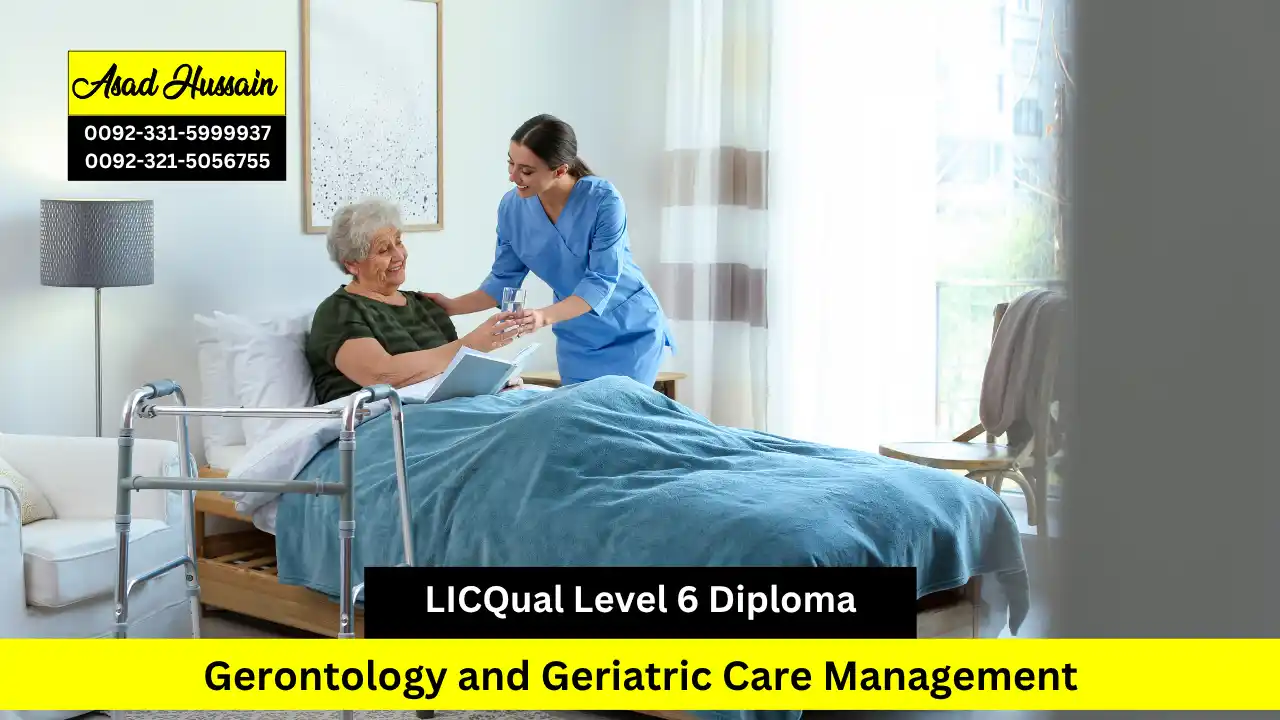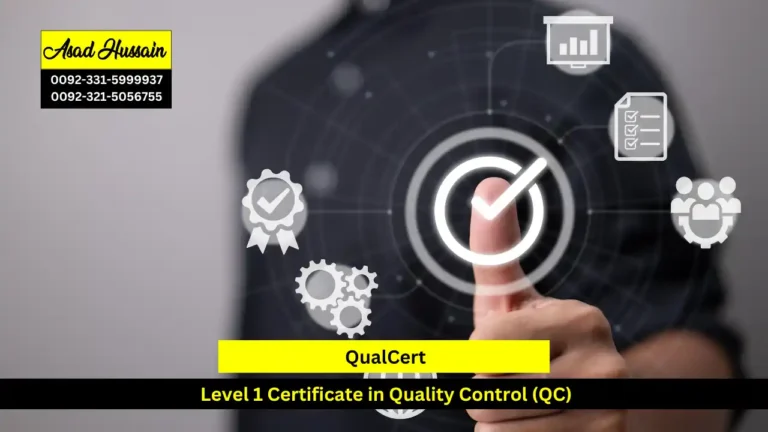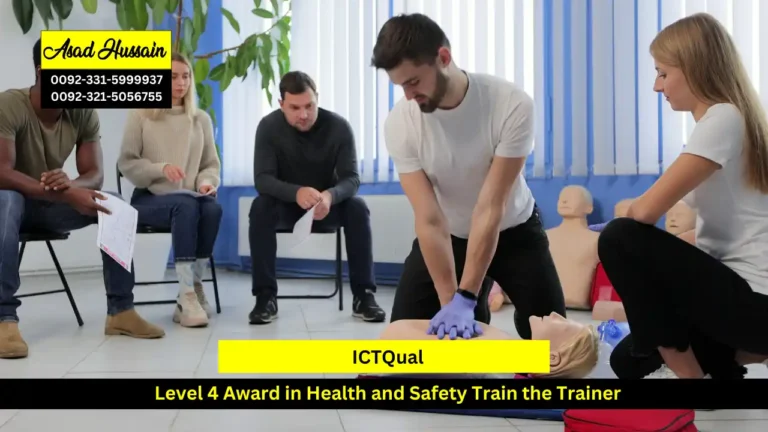The LICQual Level 6 Diploma in Gerontology and Geriatric Care Management is a globally recognized qualification designed for professionals who aspire to lead and innovate in the field of elderly care. As the global population continues to age, the demand for skilled experts capable of managing, supporting, and improving the quality of life for older adults has never been greater. This course Care Management provides learners with advanced knowledge and practical expertise in gerontology, long-term care, and the holistic management of ageing populations, preparing them to take on senior roles in healthcare, social services, and community care.
LICQual Level 6 Diploma in Gerontology and Geriatric Care Management explores the science of ageing, emphasizing both the physical and psychological aspects of elderly care. Learners will gain a deep understanding of age-related health challenges, chronic disease management, and rehabilitation strategies to enhance patient outcomes. By integrating theoretical learning with real-world applications, the qualification enables professionals to design, implement, and evaluate effective geriatric care programs that promote independence and dignity among the elderly.
A major focus of the LICQual Level 6 Diploma in Gerontology and Geriatric Care Management is on leadership and strategic management within eldercare settings. Participants will develop the skills to manage multidisciplinary teams, allocate resources efficiently, and ensure compliance with healthcare and ethical standards. These competencies are essential for those overseeing nursing homes, assisted living facilities, or community-based care services.
The course also emphasizes the importance of ethical decision-making and person-centered care. Learners will explore the legal, cultural, and emotional dimensions of caring for older adults, ensuring they are equipped to provide compassionate, respectful, and high-quality care across diverse settings. Understanding these dynamics helps professionals deliver care that aligns with global best practices and patient rights.
In addition to clinical and managerial expertise, this diploma empowers learners with data-driven decision-making and policy development skills. They will learn to analyze trends in ageing populations, assess care outcomes, and contribute to healthcare reforms that address the growing needs of the elderly. This analytical perspective is vital for shaping sustainable and responsive geriatric care systems.
The LICQual Level 6 Diploma in Gerontology and Geriatric Care Management, graduates will be equipped to take leadership roles in hospitals, elderly care facilities, and policy organizations. They will possess the confidence to influence healthcare systems, advocate for the ageing population, and drive improvements in elderly care services. This qualification Care Management not only enhances professional credibility but also contributes significantly to the quality of life and wellbeing of older adults globally.
Program Highlights
Mandatory Units
- Principles of Gerontology
- Geriatric Care Management
- Leadership and Operational Management in Elderly Care
- Quality, Risk, and Compliance in Geriatric Care
- Health, Wellbeing, and Safeguarding of Older Adults
- Evaluation, Research, and Continuous Improvement
The LICQual Level 6 Diploma in Gerontology and Geriatric Care Management is designed for healthcare professionals, administrators, and caregivers who wish to specialize in the advanced management of elderly care. This qualification welcomes learners from diverse healthcare and social service backgrounds who aspire to enhance their expertise in gerontology, geriatric healthcare, and the holistic support of ageing populations. The entry requirements ensure that learners have the essential academic foundation, professional experience, and communication skills to successfully undertake this comprehensive diploma program.
Age Requirements
• Learners must be at least 18 years of age or older at the time of enrollment.
• Applicants should demonstrate a mature, responsible, and compassionate attitude toward elderly care and healthcare management.
Educational Requirements
• A Level 5 qualification in healthcare, nursing, social care, or management—or an equivalent discipline—is preferred.
• Candidates with other recognized qualifications or relevant professional certifications may also be accepted.
• Learners without formal education but with extensive experience in elderly or healthcare services may be considered on an individual basis.
Professional Experience
• Applicants should ideally possess at least two years of experience in healthcare, nursing home management, geriatric care, or social service roles.
• Professionals currently employed in hospitals, residential care facilities, rehabilitation centers, or community healthcare programs are encouraged to apply.
• Experience in patient care coordination, elderly rehabilitation, or healthcare administration will be beneficial for applying theoretical knowledge in real-world contexts.
English Language Proficiency
• As the course is delivered in English, learners must demonstrate adequate proficiency in reading, writing, and verbal communication.
• Non-native English speakers may be required to submit evidence of language ability through recognized assessments such as IELTS or equivalent.
• Applicants with previous education or professional experience in an English-speaking environment may also meet this requirement.
Learners who do not fully meet the listed requirements may still be considered based on their professional accomplishments, motivation, and demonstrated commitment to improving geriatric care management. Those seeking to strengthen their foundational understanding before enrolling are encouraged to pursue the LICQual Level 5 Diploma in Healthcare and Social Care Management, a related qualification that provides an excellent introduction to leadership, patient care, and ethical management within healthcare settings.
The LICQual Level 6 Diploma in Gerontology and Geriatric Care Management provides learners with advanced theoretical knowledge and practical competencies essential for managing and delivering high-quality care to elderly populations. The learning outcomes are designed to ensure that learners can apply evidence-based principles, demonstrate leadership, and promote ethical, person-centered approaches in geriatric healthcare environments. Each unit equips learners with specific skills to lead effectively in care settings, ensuring safety, quality, and continuous improvement in elderly care services.
Principles of Gerontology
• Understand the biological, psychological, and social aspects of ageing and their implications for geriatric care management.
• Examine the impact of demographic trends, ageing populations, and healthcare policy on elderly care systems.
• Apply theoretical frameworks of gerontology to real-world care practices, promoting holistic and person-centered approaches.
• Analyze the ethical, cultural, and social considerations influencing the quality of life and dignity of older adults.
• Develop the ability to assess ageing-related needs and design appropriate support interventions across care settings.
Geriatric Care Management
• Demonstrate advanced knowledge of care planning, coordination, and delivery for individuals with complex health needs.
• Apply principles of case management to ensure continuity of care and efficient use of healthcare resources.
• Utilize assessment tools to identify, monitor, and respond to the changing physical, emotional, and cognitive needs of older adults.
• Implement evidence-based strategies for managing chronic diseases, rehabilitation, and palliative care.
• Promote family involvement, multidisciplinary collaboration, and ethical decision-making in geriatric care.
Leadership and Operational Management in Elderly Care
• Develop effective leadership and management skills for running residential, community, or institutional elderly care services.
• Design and manage operational systems that enhance efficiency, staff performance, and resident satisfaction.
• Apply human resource principles, including staff training, motivation, and conflict resolution, to create a supportive workplace culture.
• Lead change initiatives that improve service delivery, resource allocation, and overall care outcomes.
• Evaluate financial, ethical, and policy dimensions of managing elderly care institutions within regulatory frameworks.
Quality, Risk, and Compliance in Geriatric Care
• Understand the standards, laws, and ethical guidelines governing geriatric care at national and international levels.
• Implement quality assurance systems and performance indicators to monitor and enhance service quality.
• Conduct risk assessments to identify potential hazards, safeguarding concerns, and compliance gaps within care environments.
• Develop strategies to ensure adherence to health and safety standards, patient rights, and data protection policies.
• Promote a culture of accountability, transparency, and continuous compliance across all operational levels.
Health, Wellbeing, and Safeguarding of Older Adults
• Recognize the importance of promoting mental, physical, and emotional wellbeing among elderly individuals.
• Develop and implement holistic health promotion and disease prevention strategies tailored to older adults.
• Apply safeguarding principles to protect vulnerable individuals from neglect, abuse, or exploitation.
• Collaborate with healthcare professionals, families, and social services to ensure integrated, compassionate care.
• Evaluate wellbeing interventions and their effectiveness in enhancing the quality of life of older adults.
Evaluation, Research, and Continuous Improvement
• Conduct research and data analysis to assess the effectiveness of geriatric care programs and interventions.
• Utilize evidence-based practice and critical thinking to support continuous improvement in care delivery.
• Design and implement quality improvement initiatives that address identified gaps in service provision.
• Prepare professional reports and evaluations that support policy development and organizational learning.
• Foster innovation and lifelong learning among staff to promote best practices in geriatric and elderly care management.
The LICQual Level 6 Diploma in Gerontology and Geriatric Care Management, learners will be equipped to lead and manage elderly care services with professionalism, empathy, and evidence-based expertise. Graduates will possess the strategic, operational, and ethical competencies required to enhance the wellbeing of older adults and to contribute meaningfully to the advancement of geriatric healthcare systems globally.
The LICQual Level 6 Diploma in Gerontology and Geriatric Care Management is an internationally recognized qualification designed for healthcare professionals dedicated to enhancing their expertise in elderly care, ageing studies, and geriatric management. As populations worldwide continue to age, the demand for skilled professionals who can deliver compassionate, ethical, and evidence-based care to older adults has never been greater. This program Care Management equips learners with advanced knowledge, leadership abilities, and critical management skills to effectively plan, deliver, and evaluate care for ageing populations, promoting dignity, wellbeing, and quality of life.
Healthcare Leaders and Managers
• Professionals currently in or aspiring to leadership roles within nursing homes, elderly care facilities, and healthcare organizations.
• Managers responsible for designing, implementing, and evaluating geriatric care programs and services.
• Individuals seeking to strengthen their strategic and operational capabilities in managing elderly care organizations.
• Leaders focused on improving care outcomes through effective policy, planning, and service delivery in gerontology.
• Administrators aiming to create sustainable systems that ensure quality, safety, and respect in ageing care environments.
Healthcare Professionals and Practitioners
• Doctors, nurses, caregivers, and allied health professionals involved in the direct care and management of older adults.
• Practitioners seeking to deepen their understanding of ageing processes, chronic disease management, and end-of-life care.
• Professionals committed to providing holistic, person-centered support that enhances the wellbeing of elderly individuals.
• Clinicians aiming to integrate evidence-based geriatric practices into healthcare and social care settings.
• Learners striving to strengthen their capacity to deliver compassionate and culturally sensitive care for ageing populations.
Geriatric Care Managers and Coordinators
• Professionals responsible for case management, care coordination, and interdisciplinary planning for elderly clients.
• Individuals ensuring comprehensive assessments, tailored interventions, and continuity of care for older adults.
• Managers developing and implementing individualized care plans that support independence and long-term wellbeing.
• Care coordinators promoting collaboration between healthcare teams, families, and community services.
• Leaders focusing on optimizing resource allocation, service efficiency, and patient satisfaction in elderly care management.
Policy Makers and Healthcare Administrators
• Administrators and policy makers engaged in developing frameworks and policies for ageing and geriatric care services.
• Professionals ensuring alignment of elderly care systems with ethical, legal, and international care standards.
• Individuals responsible for creating and enforcing regulatory policies to safeguard older adults.
• Leaders managing public health programs and initiatives that promote healthy ageing and social inclusion.
• Experts striving to strengthen healthcare governance through strategic policymaking and evidence-based reforms.
Supervisors and Departmental Heads
• Supervisors overseeing care operations and ensuring adherence to best practices in elderly care facilities.
• Department heads responsible for implementing health and safety standards, care protocols, and staff development.
• Professionals conducting audits and reviews to maintain excellence in care delivery and organizational performance.
• Managers fostering professional accountability, team collaboration, and continuous service improvement.
• Leaders promoting a culture of empathy, respect, and ethical practice across all levels of geriatric care services.
Career-Focused Learners and Future Geriatric Care Specialists
• Individuals aspiring to build careers in gerontology, elderly care management, and senior healthcare leadership.
• Learners preparing for advanced roles in nursing home administration, long-term care, and geriatric policy development.
• Professionals seeking to expand their expertise in health promotion, ageing research, and geriatric wellbeing programs.
• Career-driven individuals motivated to influence global best practices in elderly care and healthcare governance.
• Learners aiming to become leaders who promote innovation, compassion, and excellence in the care of older adults.
The LICQual Level 6 Diploma in Gerontology and Geriatric Care Management is ideal for professionals dedicated to improving the lives of ageing populations through expert care management, leadership, and ethical governance. Graduates of this program will gain the knowledge and competencies required to design, lead, and evaluate elderly care services that meet international standards of quality and compassion. This qualification opens doors to advanced roles in healthcare leadership, policy development, and geriatric care management—empowering professionals to make a lasting impact on elderly care systems and the wellbeing of older adults worldwide.







